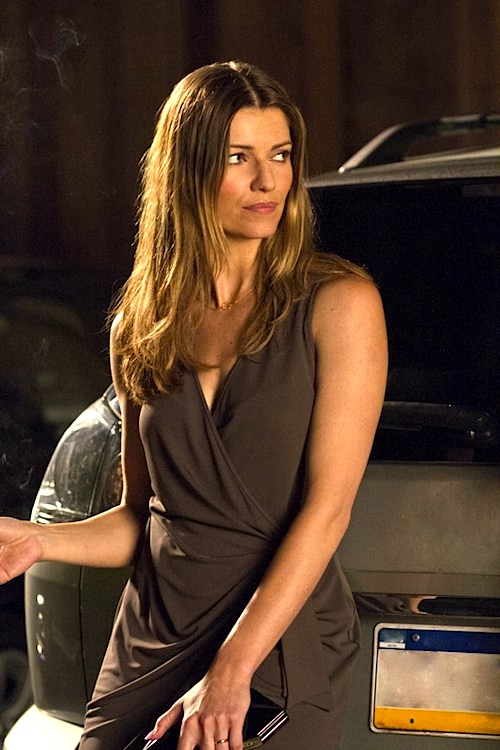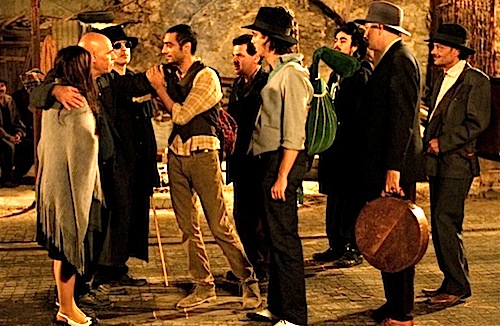By Joe Bendel. Bufurd T. Pusser would appreciate the new get-tough sheriff of Banshee, PA – were the new sheriff not an ex-con, living under an assumed identity. It sounds like a clever Cornell Woolrich set-up, but Alan (True Blood) Ball’s new Cinemax series, created by Jonathan Tropper & David Schickler, is more about action than suspense. Whatever works. As it happens, the first two episodes of Banshee work pretty well. There will be plenty of mayhem for relatively grown-up audiences when Banshee premieres this Friday on Cinemax.
His name is not really Lucas Hood. That was the name of the honest loner who had accepted the position of Banshee’s sheriff sight unseen. The recently released thief on the run from a shadowy Ukrainian gangster happened to be on-hand when Hood met his untimely end. He even threw his lot in with the lawman. It was not sufficient to save the real Hood, but it means there will be no witnesses, aside from Banshee’s sympathetic barkeep and former Cruiser weight champion Sugar Bates.

The man now masquerading as Sheriff Hood came to Banshee to confront his former lover and accomplice, now known as Carrie Hopewell, the wife of the crusading district attorney. Perhaps he will stay to take down Kai Proctor, the local slaughterhouse owner and vice kingpin, who happens to be the blacksheep son of an Amish patriarch. Meanwhile, the ominous Rabbit’s henchmen are hot on the trail of the ostensive Hood and his reluctant transvestite hacker accomplice, Job. (Who knew Harry Angstrom was a super-villain?) Potentially, Hood could find himself juggling two nemesis figures, while ambiguously pursuing his ex-lover and bedding all of Banshee’s willing party girls.
As set-ups go, Banshee’s looks solid enough to sustain at least a full season. The first episode origin-smackdown is particularly well executed, although it might represent some rather unfortunate product placement for A1 steak sauce. To judge by the first two installments, there should be plenty of Walking Tall style action. Cinemax’s horny teenager demographic will also appreciate Ivana Milicevic’s nude scenes as the presumed Hopewell.
Certainly looking the part, Milicevic does a nice job in the early going serving as both femme fatale and soccer mom. In the lead, Anthony Starr is surprisingly manly and hardnosed, especially by Hollywood’s standards. He could become a go-to guy for an industry suffering from a masculinity deficit. Although Ulrich Thomsen has played plenty of heavies in his American outings, he seems to enjoy Proctor more. The Amish angle probably helps. Ben Cross is certainly on familiar territory as the malevolent Rabbit, but Hoon Lee’s shticky Job trades on some tired stereotypes.
Banshee clearly has enough violence and mature stuff to keep it going for a while, but the underlying premise also shows considerable promise. It certainly has the right tone to appeal to fans of Cinemax’s breakout hit, Strike Back. Effectively cast and nicely paced by directors Greg Yaitanes (Episode 1) and S.J. Clarkson (Episode 2) Banshee is worth taking a shot on. It premieres this Friday night (1/11) on Cinemax.
Posted on January 9th, 2012 at 12:04pm.





